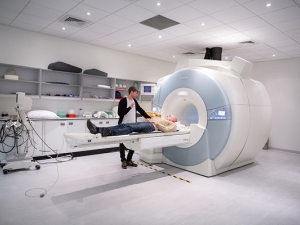

Research Bio
The broad goal of the research in Lance Kriegsfeld's laboratory is to understand the genetic, cellular, and hormonal mechanisms responsible for the temporal control of motivated behaviors and their underlying physiology. They are particularly interested in the mechanisms by which the circadian system coordinates myriad neural and peripheral processes to maintain homeostasis and promote optimal psychological and physiological functioning. Circadian rhythms in mammals are endogenously generated by a brain clock located in the suprachiasmatic nucleus (SCN) of the anterior hypothalamus. These behavioral and physiological rhythms persist in the absence of environmental time cues with exquisite precision. For this line of research, they are interested in two general research questions: 1) What are the molecular and cellular mechanisms by which circadian rhythms are generated by the mammalian brain clock? 2) How does the SCN communicate timing information to the rest of the brain and body? These lines of research examine the circadian control of endocrine function as a model system. The endocrine system provides an ideal opportunity to investigate the mechanisms and pathways by which the SCN exerts control over peripheral physiology and behavior. The cells in the brain that regulate endocrine function have been well characterized and there are abundant data available on the mechanisms by which the neuroendocrine axis is controlled hierarchically. Combined, these pieces of information allow for discovering general principles of circadian regulation of behavioral and physiological functioning using a tractable system.
Research Expertise and Interest
Neuroendocrinology, NeuroendocrinologyCircadian Biology, cognition, mental health, Neuroimmunology, animal behavior
In the News
Psychology Researchers Awarded $4.5 Million Grant for Bipolar Disorder Study
Blocking Hormone Could Eliminate Stress-Induced Infertility
Berkeley scientists show that the effects of chronic stress on fertility persist long after the stress is gone.
Jet lagged and forgetful? It's no coincidence
Holiday travel can leave people cranky and tired, in part because of jet lag, the result of your body's internal clock being out of synch with your current time zone. For chronic travelers, it's more than a passing annoyance, however. A new study shows that chronic jet lag can cause long-term brain changes that lead to memory and learning problems for at least a month after return to a normal schedule.



